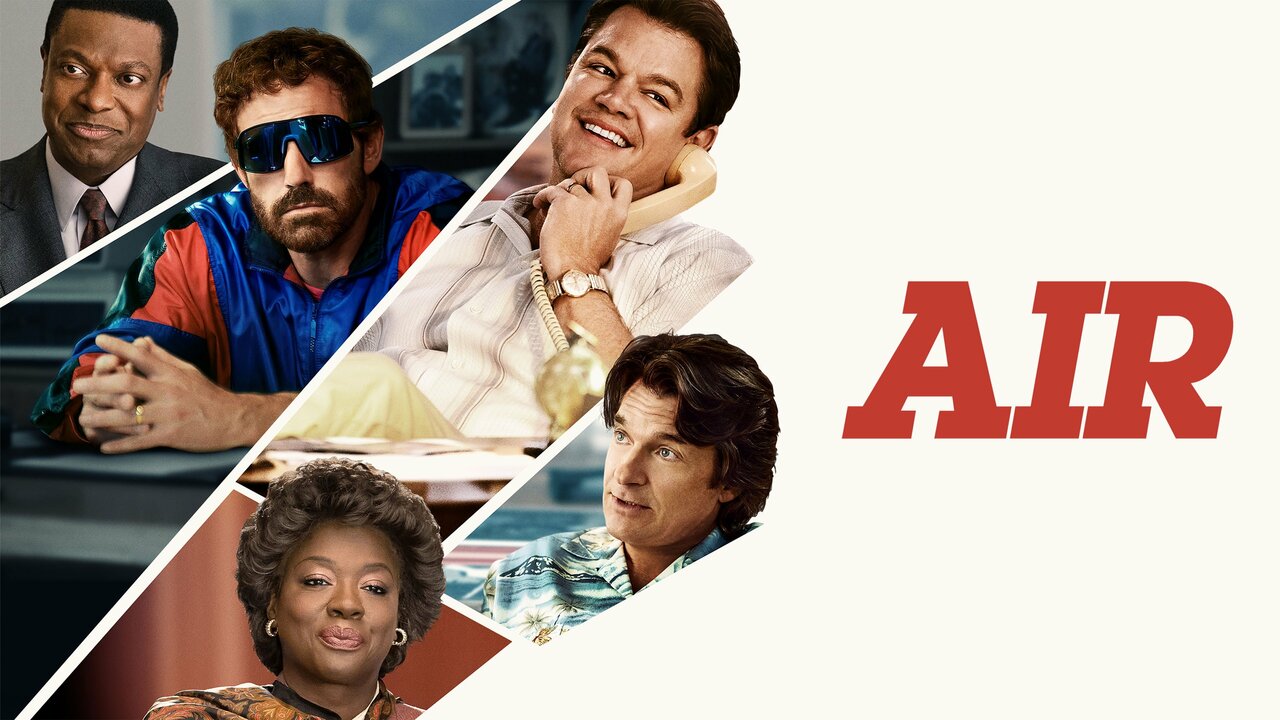Picture this – the year is 1984, and we’ve got a promising rookie named Michael Jordan just stepping into the dazzling world of professional basketball. His talent is unmistakable, and sports brands are competing to win him over. Among these big players, one brand stands out – a relatively smaller, underdog if you may, by the name of Nike.
Sure, it sounds strange today to call Nike an underdog. After all, they’re the folks whose logo is emblazoned on every other pair of sneakers you see on the streets, right? But back then, Nike was just getting started in the basketball scene. Giants like Converse and Adidas, who were the established players of the game, were the obvious options for Jordan.
Now, you’ve probably heard about the amazing blockbuster ‘Air.’ Yep, that’s the one that brought Hollywood’s A-listers like Matt Damon and Viola Davis on screen to narrate the remarkable story of how Nike soared in the basketball world, all thanks to its successful pursuit of Jordan. A fun fact about the film – Jordan himself is not portrayed by any actor. Ben Affleck, one of the film’s stars, believed that Jordan’s fame was too towering for any actor to emulate. Can you blame him?
Interestingly, Nike didn’t actively participate in the making of ‘Air.’ It’s a testament to the influence of Jordan and Nike’s compelling story that it caught Hollywood’s interest organically.
Despite the movie highlighting Nike’s journey to success, there are parts of Nike’s past that aren’t as bright. Rob Strasser, played by Jason Bateman, briefly brings up the less celebrated side of Nike’s history. Remember the controversies in the 90s? Nike’s manufacturing practices came under heavy scrutiny when it was revealed that some subcontractors in Vietnam, Indonesia, and China were paid a measly 14 cents per hour. Nike moved its production to these countries when prices in Taiwan and Korea escalated.
Also Read: Gucci’s Dramatic Fashion Fusion: Ancient Palace Meets Modern Style in Seoul
But Nike learned, and learned hard. They put in place stricter minimum standards to prevent exploitation within its production chain and focused on maintaining transparency in their overseas partnerships. These changes showed that they were willing to confront their mistakes head-on and strive for better.
In recent times, Nike has emerged as a strong social advocate, making headlines in 2018 when they stood by NFL player Colin Kaepernick, despite facing immediate backlash.
Through ‘Air,’ we get a snapshot of 1984 – a turning point in Nike’s journey. It showcases Nike’s transformation from an underdog to a beloved brand and a leader in the sports industry. Nike continues to form alliances with big names, strengthening its legacy with each new partnership. A perfect example of this was their critical role in Eliud Kipchoge’s historic sub-two-hour marathon run in 2019.
The narrative presented in ‘Air,’ however, is selectively positive, focusing on Nike’s victories while glossing over its failings. But, it’s important to remember that every triumph has its trials, and every story, its untold chapters.
So, here’s to Nike, a brand that not only continues to unearth new talents but also stands testament to resilience, learning, and growth.
















